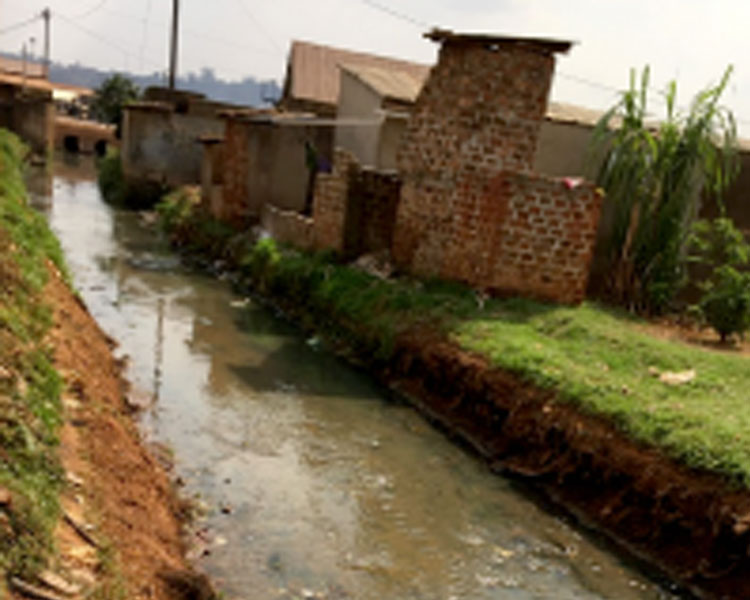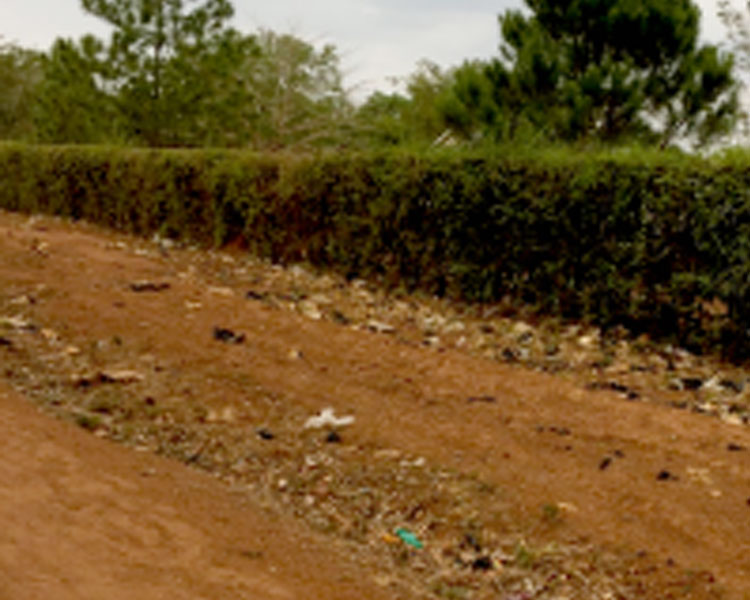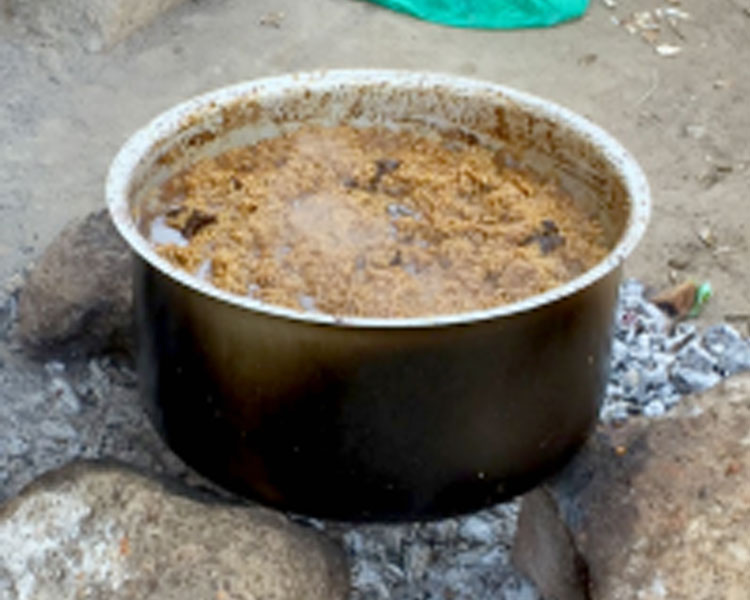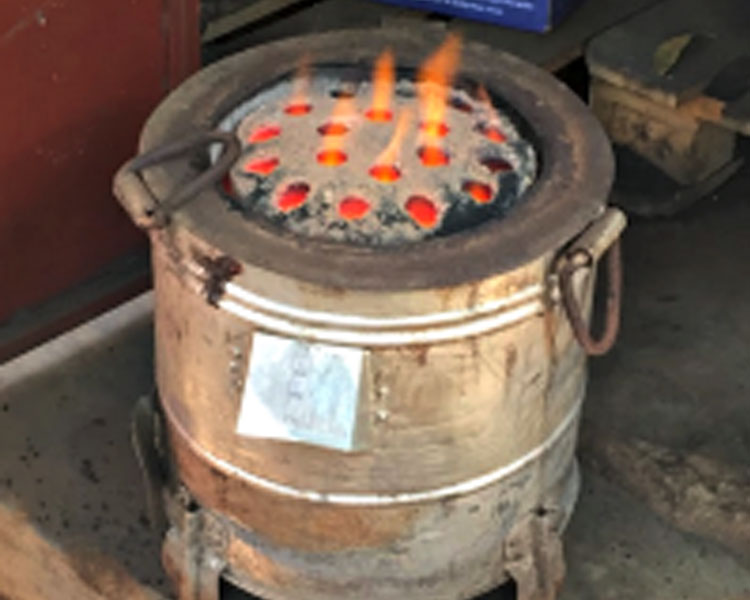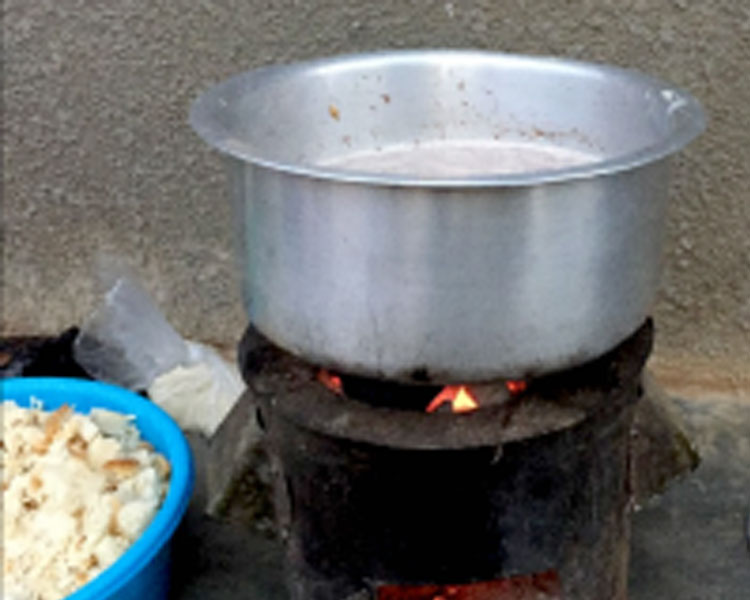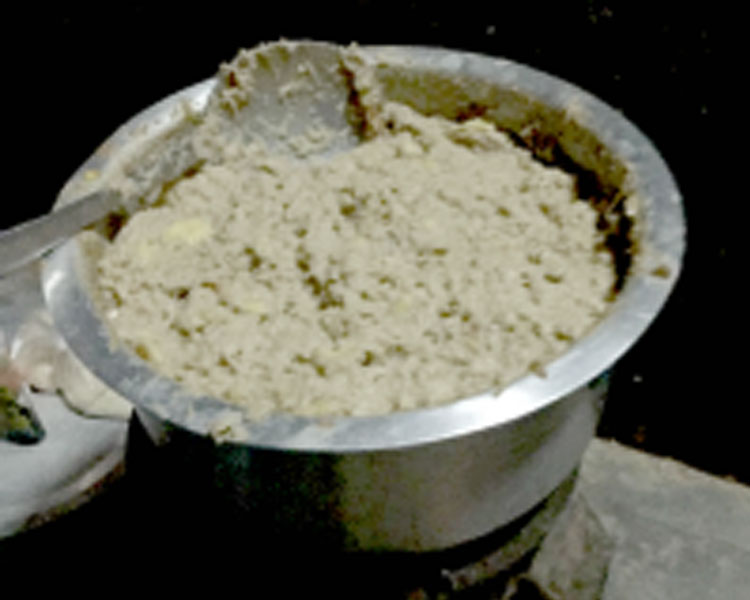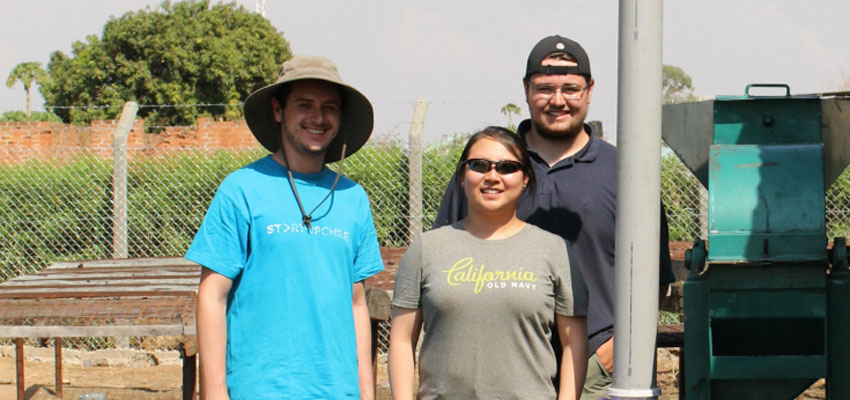
During MIT Independent Actitivies Period in January, I had the opportunity to travel with a D-Lab: Development course team to Uganda. My goals were twofold – to perform a needs assessment for a waste plastic recycling project for MIT Chapter of Engineers Without Borders (EWB), and to support the D-Lab: Development team with their projects.
ResilientAfrica Network and waste plastic recycling needs assessment
EWB's waste plastic recycling work inititally grew out of a project taken on by a D-Lab: Develpment team in Tanzania last year (see blog post). In Tanzania, they melted plastic bags and then used the resulting material for crocheting a variety of products. EWB has been running with this work since then, and had been looking to do a needs assessment with a developing world partner. Funding from a UGC D-Lab Fieldwork grant made this possible.
We spent the first few days of our trip in Kampala, the capital city. During the course of our time in Kampala, we met with young innovators working with the ResilientAfrica Network. The teams were tackling a wide range of problems from fetal monitoring in rural towns to producing reliable sources of cooking fuel using sustainable materials. In talking further with Sophie and Pamela from the sustainable fuel team, I realized that they might benefit from the work we had done for our plastics project.
The traditional method of cooking used is with a three-stone fire fueled by logs. Unfortunately, cooking with wood over an open fire poses both an environmental risk (due to deforestation) and a health risk (open flames, smoke that irritates the eyes and airways). In a city like Kampala, it is especially important to find an alternative, sustainable source of fuel. The RAN charcoal briquette team makes briquettes using organic waste material to create char that they then mix with a binder (for example, molasses thinned with water) that holds the char together and allows them to produce “honeycomb” charcoal briquettes that are essentially smokeless. Their process starts with purchasing dry organic waste matter such as leaves and other plant clippings. They then sort the material by hand, removing trash such as plastic bags or bottles. Although this is the most painstaking step of the process, they are unable to use the non-organic waste, and discard those items.
This provided me with an opportunity to assess the feasibility of, and interest in, turing this extracted plastic waste into something useful. The current plastic melting procedure developed by EWB uses readily available items such as a large cooking pot, vegetable oil, and wooden molds. While in Uganda, I was able to build a simple wooden mold with Sophie and Pamela for them to use in testing their setup. They were able to easily purchase the other items in Kampala, and were planning to begin testing. One of their asks from the EWB team is that we partner with them to test different types of filler material to see what will bind well with the plastic. Although plastic is plentiful, other materials such as sand are cheaper and will add the volume needed to create larger items. (As a general reference point, roughly half a shopping bag will make a thin square of molded plastic about 1”x 1”x 1/4”). We look forward to seeing where the project goes from here.
Innovation workshop
I also had the opportunity to work with the D-Lab: Development team on their projects – running a youth innovation workshop and improving ventilation for a charcoal grinder machine. (See Rachel and Drew’s post for more details on these projects.) One of the more rewarding aspects of the trip for me was the chance to work with the kids and briquette factory workers in Soroti to discuss with them some ways we stimulate creative thinking and approach design solutions. It was rewarding to see them get excited about developing their own designs and build prototypes to test them. As Drew, Tim, and I worked with them over the course of our two weeks in Soroti, we saw them build their confidence for trying out new methods and designs. I especially wanted to pass along one of the lessons that I learned as a student at MIT – it’s okay if your design doesn’t work the first time. I explained that just because something doesn’t work at first doesn’t mean that you should give up on that design concept entirely. It probably needs some tweaking and some additional testing, and perhaps you will find after some more testing that you can identify the flaw in your design. In other words, keep at it until you’ve tried everything! (And please take the appropriate safety precautions at every step!)
Health issues and working conditions
One of the things that I learned in Uganda is how easily people can develop serious health issues because of unsafe working conditions. My entire life, I’ve been told not to look at the sun, to wear close-toed shoes when working with machinery, and to be careful with wearing loose clothing around open flames. When we were in Soroti, one of the cookstove factory workers came to work in the morning with red, watery eyes. He said his eyes were hurting so badly even with sunglasses on that all he could do was to sit in the shade. He asked for eyedrops and painkillers (which we discovered are what people use frequently to treat their symptoms of extended exposure to light from welding). We explained that looking at the light from welding could cause permanent eye damage, and that treating the symptoms was not enough. It was hard to watch my new friend in so much pain – especially when it was easily preventable. One of my takeaways from this trip is that there is a need to not only improve the technological tools in developing countries, but also train people how to safely and effectively use the new technology. Improving people’s quality of life hinges not only on access to better infrastructure and technology, but also on access to information about how to live safer, healthier lives.
Banana bread pudding!
I wish I could share more about my trip to Uganda because it was a challenging, but incredibly rewarding experience. In the limited space I have, I will share one fun experience with you – making banana bread pudding. It’s a tradition to cook dinner for the Soroti-based team on our last night in town. Our team was planning a menu and realized that with the easy access to bananas, we could bake banana bread for dessert. The only problem was that only bakeries have ovens. In an effort to improvise, I decided to make banana bread pudding. (Pictures are below. We were outside and it got dark as I was cooking so the final dish looks pretty gray.) Overall, it was fun – I had six-year-olds helping me make it, and I got to try cooking on a charcoal-fueled cookstove! The texture was similar to oatmeal in the end, but the flavor was great. It’s something I would try out here in Boston with not-crumbly bread.
I’d encourage everyone who has a chance to work on a D-Lab project to do so and I’d also like to thank the D-Lab team, the EWB team, our partners in Uganda, and the UGC for making this trip possible.
